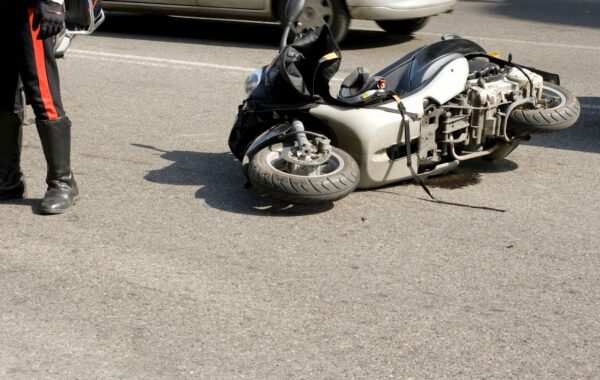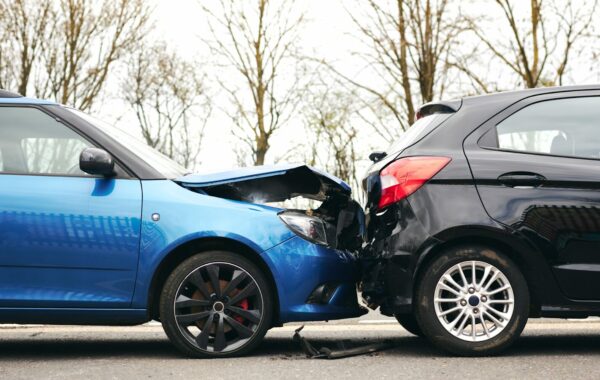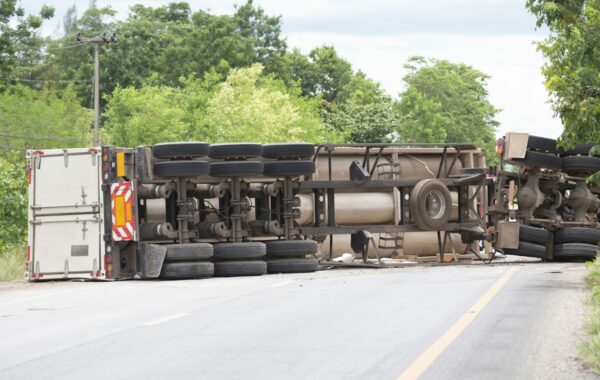
Advocating For Victims: Scooter Accident Attorneys You Can Count On
Accidents involving scooters have been on the rise in recent years, with more and more people opting
Arbitration award against an unlicensed contractor.
Father shot in the shoulder protecting his daughter in a grocery store.
Defendant 70% at fault with a jury verdict of over $11,000,000.
Police report claimed client at fault while struck by oncoming luxury sports car.
Day laborer who sustained severe burns while making repairs to a home.
Minor impact crash with a driver within the course and scope of work.
Decedent ejected from a vehicle without wearing a seatbelt.
Police report claimed client at fault with disputed liability.
Police report claimed client was at fault for unsafe lane change.
Arbitration award against an unlicensed contractor.
Father shot in the shoulder protecting his daughter in a grocery store.
Defendant 70% at fault with a jury verdict of over $11,000,000.
Arbitration award against an unlicensed contractor.
Father shot in the shoulder protecting his daughter in a grocery store.
Police report claimed client at fault while struck by oncoming luxury sports car.
Day laborer who sustained severe burns while making repairs to a home.
Minor impact crash with a driver within the course and scope of work.
Defendant 70% at fault with a jury verdict of over $11,000,000.
Police report claimed client at fault while struck by oncoming luxury sports car.
Decedent ejected from a vehicle without wearing a seatbelt.
Police report claimed client at fault with disputed liability.
Police report claimed client was at fault for unsafe lane change.
Day laborer who sustained severe burns while making repairs to a home.
Minor impact crash with a driver within the course and scope of work.
Etehad Law is a full-service law firm located in the heart of Beverly Hills, California. With over 26 years of experience, our dynamic team of attorneys is dedicated to providing high-quality legal services that are tailored to meet the unique needs of our clients. Our firm specializes in a range of practice areas, including personal injury, professional malpractice, and business litigation.
Our team of experienced attorneys at Etehad Law has a proven track record of success in recovering millions of dollars in verdicts and settlements for our clients.
Our team of capable and caring attorneys is dedicated to achieving the best possible results for our clients and ensuring that they are left in a better state than before.









Simon and Etehad Law are honored to follow in the footsteps of those who have served before.


4.9 on Google Reviews
I recently had the pleasure of working with Lawyer Simon from Etehad Law following a car accident, and I couldn’t be more satisfied with the service provided. From the outset, Simon demonstrated professionalism and expertise, guiding me through the legal process with ease. Communication was seamless throughout; Simon was always available to address my concerns and patiently answered all my questions, providing clear explanations every step of the way. His attention to detail and dedication to my case instilled confidence in me, alleviating much of the stress associated with such situations. Thanks to Simon’s efforts, the entire process was smooth and efficient, culminating in a favorable outcome. I am incredibly grateful for his assistance and would wholeheartedly recommend Lawyer Simon at Etehad Law to anyone in need of legal representation. If you’re seeking a competent and reliable attorney, look no further.
I am beyond grateful for having found this law firm to handle my case. In this convoluted and stressful world of legal disputes, finding a lawyer who not only excels in their field but also makes the process seamless and stress-free for their clients is like finding a rare gem. And that’s Simon. My experience with him w regards to handling of my insurance claim, stands as a testament to his exceptional professional abilities and his dedication to his clients. Simon demonstrated an unparalleled level of professionalism and expertise as he is very methodical and thorough. He handled every aspect of the case in a timely manner, from filing the necessary paperwork to negotiating with the insurance company. The staff is great with communication and I felt supported and reassured throughout the entire process. I wholeheartedly recommend Etehad Law to anyone in need of a lawyer who is not only excellent at what he does but also truly cares about the people he represents.
I had the pleasure of working with Simon, JP and Gayane regarding my case and although it was long and complicated they kept me well informed throughout the case and worked really hard on it. There was so many obstacles to go over and in the end we came out of it very well. They also prepared me very well for anything that required me to be on the stand and so it was recieved positively by the court. They really believed in me and my case that they went far and beyond to help me get the most i could. I have the most gratitude for this team and if i ever had another case, id absolutely work with them again. Ive heard and seen many nightmare stories of working with law groups but they were the best team ive ever worked with. They were nothing like the stories ive heard. Thank you again for working with me. I would highly recommend this to my friends and family.
Simon and his team helped me at a time in my life when I really needed legal guidance and support. After experiencing life threatening injuries, I felt unequipped to handle what lie ahead of me in my future. When I met Simon, all of those sentiments changed for the better. He is extremely well versed in his practice alongside his incredible team. Any time of day Simon was able to answer all my questions, support me personally and led me to success. I could not have made a better decision by meeting and choosing Simon as my lawyer. I will forever cherish him!
I strongly recommend this law firm to anyone who has been in an unfortunate accident. A friend suggested this place, and after conversing with them, I grasped why people speak so highly of it. My first case was a long complex case that was involved in 2 other parties. With my first accident I was hospitalized due to a concussion that I got however after contacting them a day later they handled everything and the only thing that I had to do is to go to doctor. Although my case took a long time to be solved, initially, I wasn't expecting to receive anything close to what I eventually got paid and their support is extremely high. Thanks to Simon, Diane, Nate and especially Gayane, who put her heart and soul into my case. Without out her and her team I don’t think i wouldn't get anything close to what I’ve got. Due to how well they handled my first case I ended up asking them if they can take my other cases in total of 3 other cases which they kindly accepted them which they all turn to be in my favor. In conclusion, definitely call them and ask for their consult because they know what they doing.
After I got in an hit and run accident on my motorcycle and got injured I didn’t know which lawyer to contact, a friend of mine recommended me to talk with Simon from Etehad Law and right away I felt in good hands, Simon connected me with Gayane and Nate from his office, they helped me with everything and answered all my questions, I got all the medical treatments I was needed while they were taking care of the case, Gayane did an amazing job helping me at the beginning and Nate continued the case with me all the way through the end, Gayane and the office did an amazing job reducing my medical bills and got me a settlement I wasn’t expecting! Thank you all in Etehad Law office I am definitely recommending Etehad Law office to anyone who needs help and someone to trust on!
I was hit by a car over a year ago and my doctor referred me to this great law firm, despite witnesses, saying that the accident was my fault (I was hit by a car on my bike.) 60/40 Jessica, Simone and Jean Paul (I hope the spellings all right. I’m sorry if they are misspelled.) all did a great job and won me the case.
With attorney Etehad, from the moment I had my initial consultation I knew I was in good hands. Throughout the entire litigation process, he was like an army general who led his army of amazing attorneys and support staff every step of the way until they got me a great settlement. I recommend attorney Etehad and his amazing firm without any hesitation.
Simon and his team provided me an outcome I could've only dreamed of, both in the speed the matter was resolved at, as well as the overall closure of my case. The attention and care are unparalleled. The team always addressed any request I had with the outmost respect and attention. I felt genuinely taken care of. I highly recommend Etehad Law to anyone who is seeking a law firm that will do everything for your success. With Simon and his team you will not only be in good hands. you can be rest assured you will get the best outcome possible.
Simon and his team have been amazing to work with. I don't tend to do a lot of reviews, but I have to say that if you, a relative or a friend have been involved in an accident--the Etehad Law staff is the best option to go with. They have bilingual staff, they are cordial, welcoming and Simon's energy to personally be of help to you and your case, has been wonderful. I truly wished I could've learned about them sooner, it would have saved me sooo much money and time. Nevertheless, I am so glad to work with this wonderful team and if you do have the need for legal advice, trust me, give them a call, set up a meeting and let them take care of you--as nice as they have been taking care of my family and I.
Jessica and Mr. Etehad were so kind and knowledgable throughout the entire intake process.
Etehad Law Firm provided us with incredible representation and top tier client services. Very personalized experience and 100% satisfied with our settlement. Huge thanks to Simon, Kirk, and Jessica for the many hours spent fighting on our behalf. Would recommend this team to anyone needing legal representation.
I got into an accident and reached out to Simon Etehad. He and his team are very professional and helped me get a great settlement. Anytime I needed them, they were only a phone call away and they would even call me and email me regularly with updates on my case. I could not be happier and would recommend Etehad Law for any personal injury case.
ADIB S.
I went to him 2.5 months ago after my husband came limping home after a car hit him while on his bike. I'm very thankful I did. He won us the max on the insurance limit. Of course that was nice.....but he also sent my husband around to the doctors he works with and my husband received the BEST CARE and is in full recovery. Simon and everyon in his office are great people!
ANNALISE C.
The only thing I can say is that Etehad Law is the best law firm. I was very happy and satisfied with them. I really do recomment them to my friends and family.
FABRIA A.
I went to him 2.5 months ago after my husband came limping home after a car hit him while on his bike. I'm very thankful I did. He won us the max on the insurance limit. Of course that was nice.....but he also sent my husband around to the doctors he works with and my husband received the BEST CARE and is in full recovery. Simon and everyon in his office are great people!
ANNALISE C.

Accidents involving scooters have been on the rise in recent years, with more and more people opting

Car accidents can be a traumatic and overwhelming experience, leaving you with physical injuries, emotional distress, and

When it comes to choosing a San Diego truck accident attorney, experience matters. Truck accidents can be
Adding {{itemName}} to cart
Added {{itemName}} to cart